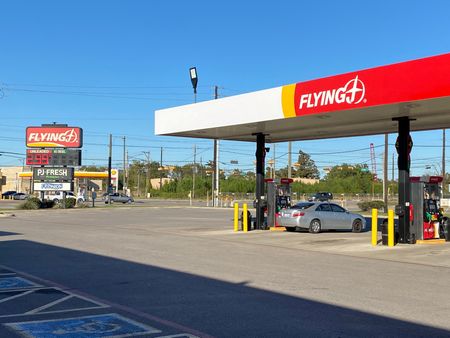By Laura Sanicola and Arathy Somasekhar
(Reuters) – U.S. fuel retailer Pilot Company is trimming its energy trading operation, following the acquisition of a majority stake in the firm by investor Warren Buffett’s Berkshire Hathaway Inc .
Known for its Pilot Flying J service stations and truck stops, Knoxville, Tennessee-based Pilot expanded a fuel purchase and trading business in recent years by recruiting experienced diesel, gasoline and crude oil traders from Exxon Mobil Corp, Phillips 66, Noble Group and others.
About 15 employees were released on Monday, most tied to an expansion two years ago into crude oil trading, said two people familiar with the matter. Vice President Steven Hollerbach is leaving as part of the downsizing, the people said.
Pilot declined to comment on executive moves.
Pilot’s CEO, Shameek Konar, said in a statement: “While a small piece of our energy trading business was eliminated, Pilot Company will continue its sustained growth and innovation across our travel center network and energy divisions.”
Berkshire Hathaway declined to comment. In 2018 it acquired a stake of about 39% in the company. In late January it increased its stake to 80%, the Pilot spokesman said.
The Haslam family, who founded Pilot Company in 1958, retained a 20% stake.
Pilot’s oil and petroleum trading operation is small, with about 100 employees, a fraction of the staff at better-known traders Freepoint Commodities, Mercuria and Vitol. The privately held company posted sales of about $45 billion in 2021.
That year, Pilot expanded its fuel trading business by adding financial trading and a Mexico trading specialist to gain better insight into the market and sell fuel it did not need for its own operations.
Pilot operates about 800 retail outlets in 44 U.S. states and six Canadian provinces, and runs a fleet of 1,600 tanker trunks that supply its own stores and other retailers.
(Reporting by Laura Sanicola in Washington and Arathy Somasekhar in Houston; Editing by Chizu Nomiyama and Matthew Lewis)


